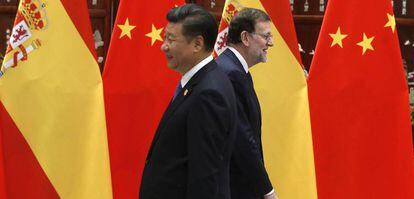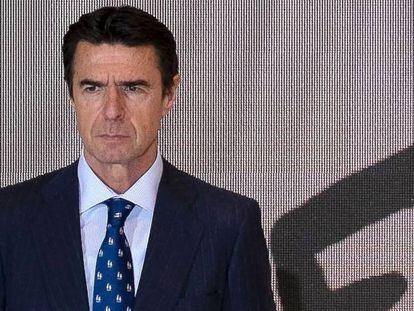Popular Party’s unity cracks over World Bank nomination
Senior figures within group question choice of minister who resigned over Panama Papers link

Spain’s acting Prime Minister Mariano Rajoy is facing mounting criticism within his Popular Party (PP) over the nomination of a former minister named in the so-called “Panama Papers” to an executive position at the World Bank.
Dissenting voices are questioning the wisdom of choosing José Manuel Soria, who has not been charged with any wrongdoing but who stepped down as industry minister in April after his name cropped up in the Panama Papers, a massive leak of insider files detailing offshore financial dealings by hundreds of individuals, including current and former world leaders.
King tells parties to get moving
King Felipe VI on Monday said that for now he will not organize a new round of talks with political leaders, and will instead wait for them to try to reach governing deals. Faced with the unprecedented situation of two failed investiture votes, the monarch called on Spanish parties “to make decisions that will solve citizens’ problems.”
“The political plurality expressed at the polls entails a form of doing politics that is based on dialogue, agreement and compromise,” he said.
Alberto Núñez Feijóo, the regional premier of Galicia, has described his own party’s decision as “difficult to understand” and called for “additional explanations.” He added that while there was nothing illegal about nominating Soria to the post, “what’s being debated here is whether it is opportune.”
Cristina Cifuentes, leader of the regional government of Madrid, said she feels that the appointment “should not have taken place,” while her counterpart in Castilla y León, Rosa Valdeón, said she was “embarrassed” by the choice.
And Esperanza Aguirre, a party heavyweight and former Madrid premier, noted that the announcement came “just two minutes after the failed investiture vote.” She was alluding to last week, when Rajoy submitted his own name for reinstatement as prime minister but was predictably voted down by a majority in Congress
Internal critics feel that Soria’s nomination does nothing to help public perceptions of the PP as a party plagued by corruption that is preventing it from attracting support in Congress. Spain has been stuck in political limbo ever since an inconclusive general election in December, when the PP failed to secure a congressional majority and was forced to seek alliances.
Failure to do so resulted in a repeat election on June 26, with similar results. If no breakthrough occurs within the next two months, Spaniards will have to go to the polls for a record third time within a year – possibly on Christmas Day.

On Monday, Rajoy attempted to distance himself from the decision to nominate Soria as an executive director at the World Bank, a position that comes with an annual salary of around €226,000, tax-free.
“I don’t know anything. The only thing I know is that Mr Soria has left politics,” said Rajoy at the G20 summit in China. “He is a civil servant, he returned to those duties and he went through the application process like all civil servants do.”
But the evaluation committee that formalized the nomination is made up of high-ranking officials of the PP government.
The nomination must now be approved by the World Bank, which states that executive directors’ “personal and professional conduct must comply with the standards and procedures set forth in the code of conduct.”
Rajoy’s strategy: to “persevere”
Asked about his plans following his failed reinstatement bid, Rajoy said simply: “to persevere.” The caretaker PM has no plans to change the strategy he has been pursuing since December 20. If the main opposition Socialists (PSOE) refuse his offer for a grand coalition, he will continue to ask them to “let me govern” in a minority government. Paraphrasing Groucho Marx, he said that he would not engage in the practice of “these are my principles, and if you don’t like them, I have others.”
English version by Susana Urra.












































